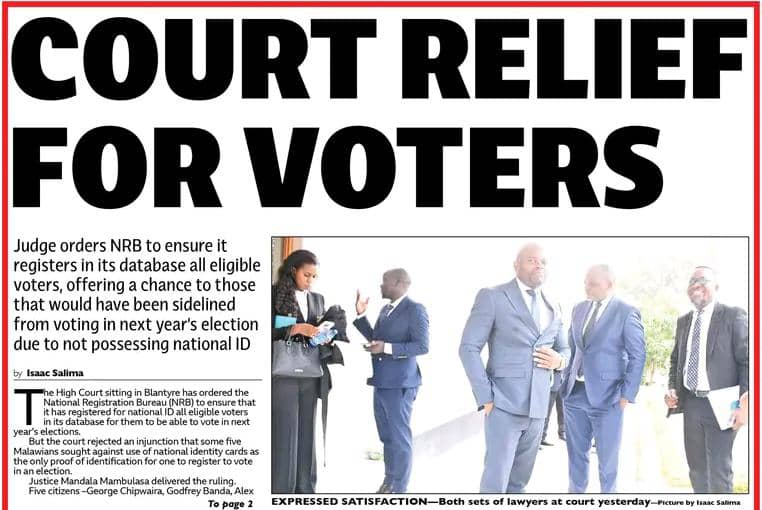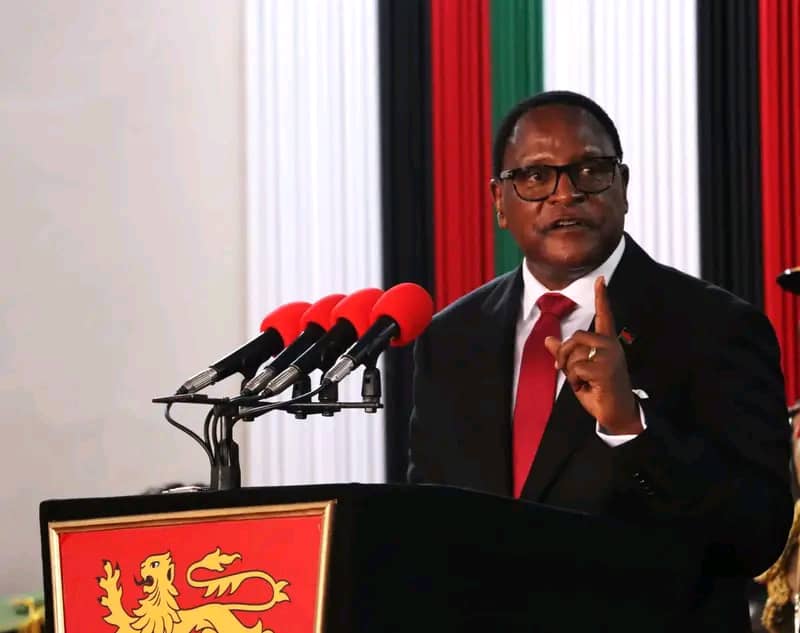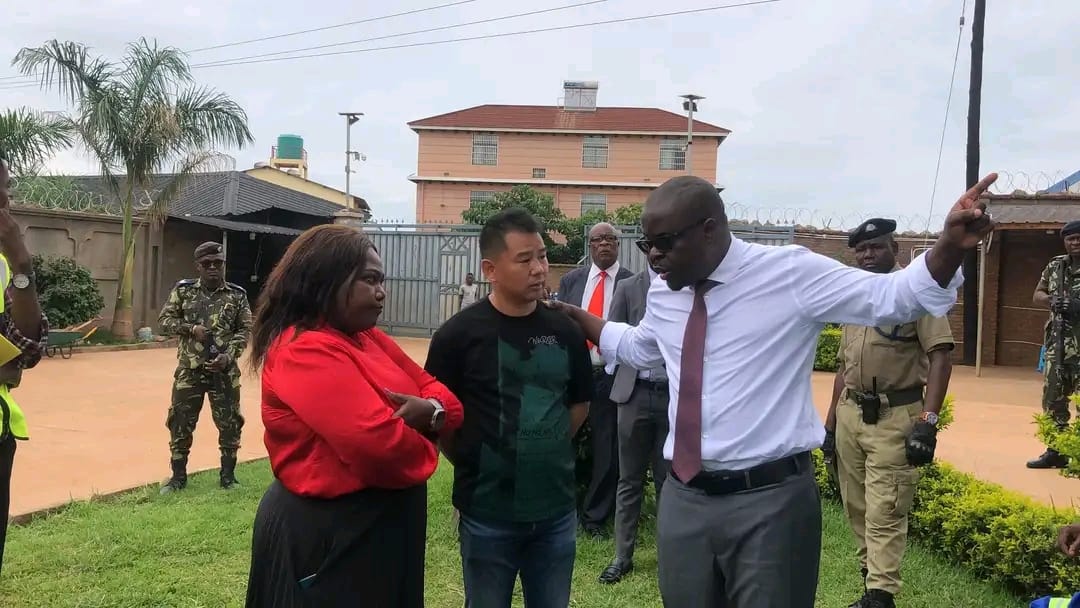By Burnett Munthali
In a landmark decision, the High Court sitting in Blantyre has ordered the National Registration Bureau (NRB) to ensure that all eligible voters in its database are registered for national IDs ahead of the 2025 elections. This ruling emphasizes the critical role of national identification in Malawi’s electoral process and places immense pressure on the NRB to swiftly act to meet the court’s demands. With less than a year until the general elections, the ruling could significantly impact voter turnout and the legitimacy of the upcoming elections.
The national ID system plays a crucial role in Malawi’s electoral process, as it is the primary means through which citizens are recognized as eligible voters. The system was established to create a more accurate, fraud-resistant electoral register and ensure that only qualified voters participate in elections. However, the court’s recent ruling highlights concerns that many eligible voters may still be without national IDs, thus risking disenfranchisement in 2025.
The NRB, as the body responsible for issuing national IDs, must now accelerate its efforts to register all eligible citizens. Failure to meet the court’s order could result in significant numbers of voters being left out of the democratic process, which would undermine the credibility of the election and fuel political discontent.
While the court’s decision is clear, it is equally important to recognize the challenges the NRB faces in fulfilling this mandate. The NRB has previously struggled with logistical issues, underfunding, and limited personnel, all of which have contributed to delays in national ID registration. With Malawi’s population continuing to grow and more citizens becoming eligible to vote, these challenges are further compounded.
Reaching remote areas, ensuring data accuracy, and addressing discrepancies in registration records will be key obstacles for the NRB to overcome in the coming months. Additionally, the lack of a robust technological infrastructure in certain regions may slow down efforts to ensure that all eligible voters are registered in time.
The court’s decision has significant implications for the 2025 general elections. Firstly, it places a renewed focus on the importance of voter inclusion. Ensuring that all eligible citizens have the opportunity to vote is essential for a fair and transparent election. If large sections of the population are excluded due to a lack of national ID registration, it could lead to post-election disputes and raise questions about the election’s legitimacy.
Furthermore, political parties and civil society organizations will closely monitor how the NRB responds to this ruling. Any perceived delays or failures in registration efforts could become a point of contention during the election campaign, with opposition parties likely to accuse the government of disenfranchising voters for political gain. This could heighten tensions and contribute to an already polarized political climate.
While the NRB bears the primary responsibility for ensuring eligible voters are registered, it is important for other stakeholders to play their part in supporting this effort. The Malawi Electoral Commission (MEC), political parties, and civil society organizations should collaborate to raise awareness about the importance of national ID registration and encourage eligible citizens to come forward. Additionally, international partners may need to provide technical and financial support to ensure the registration process proceeds smoothly.
The High Court’s ruling puts the NRB under intense scrutiny as it faces the daunting task of registering all eligible voters for national IDs ahead of the 2025 elections. The pressure is on for the bureau to overcome logistical and financial challenges to meet this deadline, as the implications of failing to do so could be dire for the legitimacy of the elections. As the election date draws closer, all eyes will be on the NRB to ensure that no eligible voter is left behind in what is set to be a crucial moment in Malawi’s democratic history.




